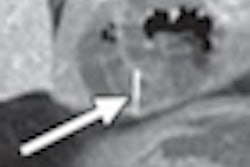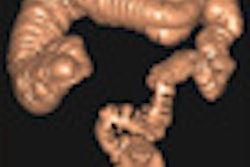Dear Virtual Colonoscopy Insider,
Flat colorectal polyps, which tend to harbor high-grade dysplasia more often than polypoid lesions, are hard to detect at virtual colonoscopy -- that is, unless they're run through a computer-aided detection (CAD) algorithm developed by Harvard Medical School researchers.
In a study presented last month at the 2012 European Congress of Radiology (ECR), the Harvard team found no significant difference in the detection rate for polypoid versus flat lesions in the CAD scheme trained and tested on thousands of screening subjects. False positives were kept on the low side, as well, the group reported. Get the details on these suddenly less elusive lesions in this issue's Insider Exclusive.
In a second important study from ECR, Italian researchers found that virtual colonoscopy handily outperformed conventional colonoscopy for patients with colorectal cancer or complex diverticular disease. Laparoscopic procedures, a less invasive option like virtual colonoscopy, are becoming more common as providers seek to cut costs and speed recovery time. The group from Ferrara, Italy, said VC offers a better view of what surgeons are going to encounter inside the abdomen, and it doesn't depend on the ability to fully advance the colonoscope. You'll find the rest of the story here.
Patients with gastrointestinal disorders are getting some of the highest CT radiation doses encountered in clinical practice, according to a new study in Clinical Gastroenterology and Hepatology. Crohn's disease, organic small bowel disease, and functional disorders of childhood and adolescence topped the list for disturbingly high radiation exposure among younger patients. Fortunately, virtual colonoscopy wasn't part of the mix, but it might have done more for less in some of the patients.
Speaking of risks, a new report in the Journal of the American Medical Association finds that the use of anesthesia and sedation have spiked among endoscopy patients, such as those undergoing conventional colonoscopy. Originally intended only for high-risk patients, sedation and anesthesia have found a wider audience, adding to the costs and risks of care.
Coinciding with colorectal cancer awareness month in March, new legislation introduced in the U.S. House of Representatives aims to make CTC screening a covered preventive healthcare service. The bipartisan CT Colonography Screening for Colorectal Cancer Act of 2012 was introduced by Reps. Danny Davis (D-IL) and Ralph Hall (R-TX).
The sponsors of that bill highlighted the most important VC study of 2012 so far: an analysis of data from the National CT Colonography Trial (ACRIN 6664) showing that virtual colonoscopy is just as effective in Medicare-aged screening subjects as in the rest of the over-50 population. Read more about the Mayo Clinic study by Dr. C. Daniel Johnson et al here.
The American College of Radiology's Colon Cancer Committee wasted no time mentioning that study among several other recent papers showing the benefits of CTC in a long-awaited meeting with the U.S. Centers for Medicare and Medicaid Services, which has been asked to reconsider its denial of coverage for the virtual exam. You'll find more details here.
We invite you to scroll through the links below for the rest of the stories in your Virtual Colonoscopy Digital Community -- and be sure to check back next week for an unusual study on the psychology of CTC.




















